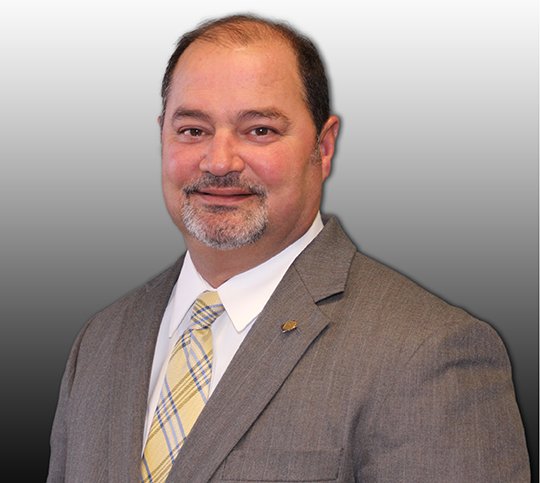City Manager Bill Burrough said 2018 was a success for Hot Springs, an assertion he supported with a raft of economic indicators he said bodes well for the future.
Burrough called the city "dynamic" and "vibrant" in the annual state of the city address he delivered to the Hot Springs Board of Directors last week. Per city code, the chief executive is required to report on the city's financial and administrative activities from the previous year within 60 days of the new year.
"Ladies and gentlemen, there is so much going on in our city that it would take a speech of excessive length to summarize it all," he said. "But suffice it to say, the state of our city is dynamic."
That energy has brought more residents to the corporate limits, he said, citing a recent update to the 2010 Census that accounted for growth the city has had since the last decennial count. The update includes about 900 residents who have been annexed into the city since 2016.
"This amounted to 2,738 additional citizens, bringing our population to 37,931," he said of the update. "Population growth inside the city has been relatively flat over the past 30 years, which we expect to change with the upcoming 2020 Census."
Collections of the 1-percent sales tax supporting the general fund and half-percent sales tax supporting the police and fire funds were on pace to surpass their 2017 totals.
They collected $12,058,604 and $6,029,302, respectively, through November, a 1.81-percent increase over the previous year. The city is expected to release the December sales tax report later this month. Its 2019 budget projects $13,606,778 and $6,803,389 in collections, with the latter shared by the police and fire funds on a 60-40 basis.
The 3-percent hospitality tax the Hot Springs Advertising and Promotion Commission levies on prepared food and lodging inside the city was up 3.83 percent through November.
"The steady increases in our sales tax figures provide a solid foundation moving forward along with other indicators that comprise our revenue streams," Burrough said.
That portfolio includes the games-of-skill tax the city levies on Oaklawn Racing and Gaming's net wagering revenues. The city's 1.5-percent share netted $2.15 million last year, Burrough said, an 8-percent increase over 2017. It's uncertain how last year's passage of the casino gaming amendment to the state Constitution will affect the city in 2019, but Burrough said an additional $1.5 million is expected to flow to the city.
The city will receive 19.5 percent of the tax levied on Oaklawn's net casino gaming receipts under the distribution formula outlined in the ballot title voters approved in November. The amendment applies a 13-percent tax on the first $150 million of net gaming receipts, increasing to 20 percent on receipts of more than $150 million.
The state Department of Finance and Administration said the new tax and distribution structure will take effect when the Arkansas Racing Commission issues Oaklawn a casino gaming license, which the state said could happen by July 1.
"Although it's still early in the process, we believe the passage of Issue 4 at the recent general election will have a positive impact on city revenue streams," Burrough said.
The more than $100 million expansion Oaklawn announced in November will be a further boon to the local economy in 2019 and beyond, Burrough said.
"This project, one of the largest tourism-related expansions in our state's history, will also rank among the state's largest economic development projects in 2019," he said. "An estimated 2,300 jobs will be created during the construction phase, with several hundred new permanent jobs created once the expansion is completed in late 2020."
According to U.S. Department of Labor data, the December 2017 unemployment rate of 3.9 percent for the Hot Springs Metropolitan Statistical Area, which comprises Garland County, increased to 4.1 percent at the end of last year.
The number of employed or unemployed people actively seeking work fell from 39,164 in December 2017 to 39,136 at the end of last year. Total non-farm jobs rose from 37,500 to 37,900 over that time.
Downtown maintained the ascent it began after the Majestic Hotel fire in February 2014, Burrough said, noting that more than 100 businesses have opened since the watershed event.
"With more than $12 million in capital investment and 16 commercial properties changing hands in excess of $8 million, business development continues to fuel the continued resurgence of our famed downtown," Burrough said.
The real estate market was also brisk. Citing data from the Arkansas Realtors Association, Burrough said Hot Springs area home sales rose almost 13 percent from 2017 and totaled $305 million.
The almost $54 million valuation of the city's 2018 building permits marked a 70-percent increase over 2017, he said, noting construction projects at the Hot Springs and Lakeside school districts spurred the increase.
"It's an exciting time in Hot Springs, and the future points to even more positive change and progress," he said. "As your city manager, I look forward to this time next year when I can report even more progress that our community has yet to realize."
Local on 02/15/2019